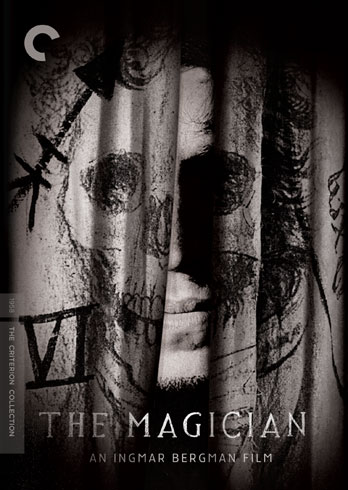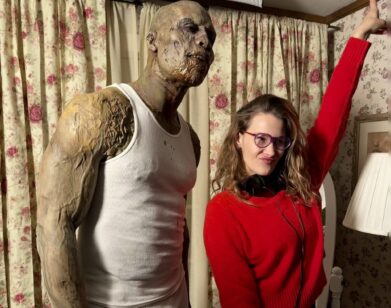Revealing (a Few of) Bergman’s Tricks

Ingmar Bergman’s The Magician (1958) is often classified as an art-house horror movie, but it’s just as much about our resistance to horror movies. A large part of us wants to believe that Max von Sydow’s grave, mysterious Dr. Volger has supernatural abilities; at the same time—or perhaps more precisely, after we’ve had some time to reflect—we remind ourselves that he is but a mere showman, bound by the same earthly rules as the rest of us.
Critics, of course, specialize in explaining the artist’s tricks; do they realize that as they badger and smirk, he may begin to doubt his own abilities? Underneath his wig and makeup, Volger is experiencing a crisis of faith in himself, and even if Bergman made The Magician during a comparatively sunny period in his life, while he was happily directing a theater troupe in Malmö, the film is a bit of a tirade against professional skeptics. LEFT: IMAGE COURTESY OF THE CRITERION COLLECTION.
Basically, the plot goes like this: Volger is summoned to a dignitary’s house, where the town’s chief of police and leading man of science set about exposing him and his troupe as frauds. Volger is humiliated, but then his dubious abilities cast their spell, semi-comedically turning the household upside down.
In an autobiographical excerpt included in Criterion’s latest reissue of The Magician, Bergman admits that he based the character of Vergerus, the smug interrogator and Volger’s main antagonist, on an influential movie critic of the time—one of very few “malicious portraits of people I know” that he ever drew as a filmmaker, and one he doesn’t seem to regret, despite the fact that the critic later became a good friend.






